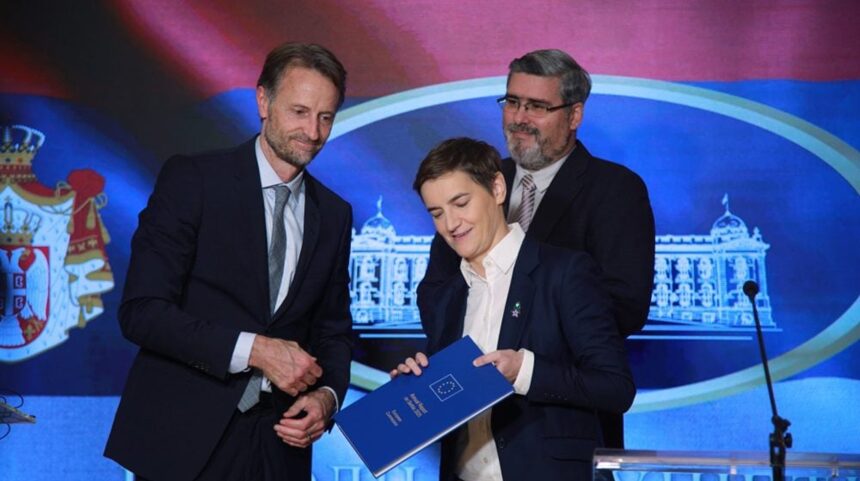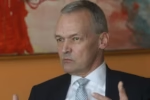Belgrade, Serbia – Serbia’s march toward the European Union is stumbling badly, according to the Head of the EU Mission in Belgrade, Andreas von Beckerath, who today presented the European Commission’s 2025 progress report to Speaker Ana Brnabić in the National Assembly.
Von Beckerath did not mince words. While Serbian authorities continue to claim EU membership as a strategic goal, their actions tell a different story: rising corruption, political polarization, repression of civil society, and disregard for fundamental rights are undermining the country’s democratic fabric.
“The pace of reforms has slowed dramatically,” von Beckerath said, pointing to growing societal divisions and protests sparked by the deadly collapse of a canopy at Novi Sad station. “This tragedy exposed not only systemic corruption, but also the state’s willingness to use excessive force against citizens who demand accountability.”
The report paints a damning picture:
- Judiciary in crisis: Courts are overburdened and ineffective, leaving citizens without justice and eroding trust in institutions.
- Freedom under threat: Media, academics, and civil society face pressure, censorship, and intimidation. The regression in freedom of expression is alarming.
- Rampant corruption and lack of transparency: Public projects continue to be mismanaged, contracts are opaque, and accountability is missing at every level.
- Electoral manipulation: Weaknesses in the voter registration and election system leave the door open for political manipulation.
Von Beckerath also highlighted Serbia’s failure to define a clear European path. Anti-EU rhetoric continues unabated, while concrete reforms lag behind empty promises. Alignment with EU foreign and security policy is slow and inconsistent, and Serbia has yet to fulfill obligations under the 2023 Kosovo normalization roadmap, including accountability for events in northern Kosovo.
“Serbia’s European path is in its own hands,” the Ambassador said, “but the country must first confront its internal corruption, end political manipulation, restore trust among citizens, and create space for genuine, inclusive dialogue. Without bold reforms in the judiciary, media, electoral system, and fundamental rights, Serbia risks remaining stuck in stagnation, with its citizens paying the price.”
Even small successes, such as amendments to media laws and steps toward a single voters’ register, are overshadowed by the widespread dysfunction and institutional decay. Von Beckerath concluded with a stark warning: “Words alone will no longer suffice. Serbia must show real, measurable action if it wants a future in the European Union. Anything less is a betrayal of its citizens and the promises it has made to Europe.”
Serbia now faces a choice: confront corruption and institutional decay, or continue down a path of mistrust, polarization, and broken promises. The EU’s patience is not unlimited.







